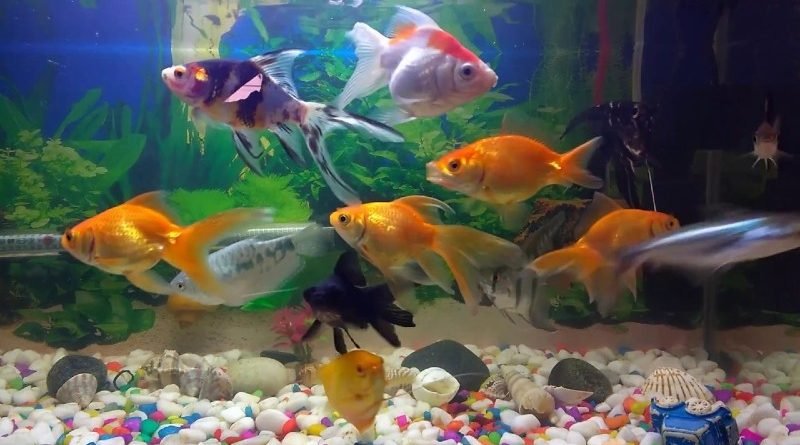10 Tips For First-Time Fish Owners
Are you thinking about getting a fish tank? If so, congratulations! Fish tanks are a fun and fascinating way to add some life to your home. But if you’re new to fishkeeping, you should know a few things. Building a miniature ecosystem and watching it develop is also an excellent way to teach children about responsibility at an early age.
However, failure and frustration will come if you do not understand how to care for your new aquarium and its fishes properly. It is not as easy as simply supplying food and drink. Understanding the many elements that go into keeping fish alive and healthy is the most difficult aspect of fish keeping.
With this, PETstock Australia offers these 10 tips for first-time fish owners:
1. Choose the Proper Tank Size
The first factor to consider is the aquarium size you want to buy. Generally, the larger the tank size, the better. If you don’t have the right budget or size for a big tank, try purchasing the largest aquarium possible.
Keeping the chemistry of the water and temperature steady in a larger tank is significantly easier. Also, selecting a tank longer than is high is recommended, allowing your fish greater room to swim around.
2. Find a Proper Location for your Aquarium
Your aquarium should be placed away from the windows and far from heaters or ventilators. Choosing an area away from the busy area is preferable because it is less likely to be carelessly disturbed.
Ensure that your aquarium is balanced and supported by a strong stand. If it is slanted on one side, it can stress that area, potentially resulting in cracks. Also, you should ensure sufficient outlets around for all the tools you will require.
3. Understand your Fish
Consider carefully what kind of fish you’re keeping. Fish for aquariums have a wide range of needs based on their origin. Also, you need to know their preferred food, water temperature, and chemistry.
You can keep some fish together from the same place as they can have the same needs, but make sure to know their behavior to avoid placing predatory fish. Analyze how large each fish is meant to grow, and avoid any fish species that might grow too big for your tank.
4. Condition the Water
To keep your fish healthy, you should keep in mind that your water must be conditioned just right. Use a water conditioner to remove the chlorine on the water from the tap. Chlorine is harmful to fish, causing necrosis (cell death) in their gills and asphyxia. Don’t put untreated water in your tank.
5. Cycle the Tank
Don’t buy your fish and tank the same day. You need your tank to be ready. This is the most important part of fish keeping. Cycling the tank means letting the bacteria in the bottom and filter develop to break down fish waste effectively. Ammonia and other harmful compounds can accumulate in a tank to the point where they can harm the fish.
6. Regularly Change the Water
A dirty fish tank can be detrimental to your fish’s health. Changing your water depends on how full your aquarium is for its size. You can change 10-15% weekly or 20% for aquariums stocked at their maximum capacity. Clean your tank regularly and remove any uneaten food and debris.
However, you should remember some beneficial bacteria are living in the gravel, sand, or filter, so avoid cleaning both simultaneously to avoid losing them. Also, do not use any soap or other cleaning supplies. Use also tank water to clean the tank with sponges.
7. Don’t Overstock the Aquarium
Never overstock your tank, as it can lead to stress, lack of oxygen, and diseases. Territorial fish, such as cichlids, will become more aggressive, requiring regular tank maintenance. A lack of space can even limit growth, and all of your fish may appear chewed.
8. Do not Overfeed your Fish
While getting to know your fish, feed-in little amounts and ensure they’re eating it before giving more. Only give your fish the food they will eat right away, as you don’t want any extra food floating in your tank. You can feed your fish twice daily but first, research your fish species to ensure that you’re giving them what they need.
9. Use Caution with Treatments and Chemicals
The water in your fish tank is delicate, and you should be careful when using chemicals such as cleaners or medications. Fish can experience side effects from these things, so it’s best not to use them without consulting an expert first!
10. Join Aquarium Groups
Nothing beats learning from people or groups that have been fishkeeping for a long time. Aquarium groups can be a great place for a beginner like you to ask questions and be more knowledgeable about fishkeeping.
Conclusion
Fish are an excellent pet for a variety of reasons. They save space because they have a specific room area, and you always know where they are! Also, they are quite low maintenance, though you will need to set aside time to keep the tank and water in good shape.
Whether a first-time fish owner or an experienced one, there are always new things to learn when caring for these fascinating creatures. That’s why we’ve put together this list of 10 tips for first-time fish owners – so you can have a thriving aquarium full of healthy fish.
References:
https://pethelpful.com/fish-aquariums/Aquarium-Tips-For-Beginners
https://pethelpful.com/fish-aquariums/Tips-for-Starting-a-New-Aquarium-Beyond-the-Setup-Guide
https://www.thepetexpress.co.uk/blog/blog-new-products/the-beginners-guide-to-keeping-fish/
https://www.practicalfishkeeping.co.uk/features/39-top-tips-for-fishkeepers/

